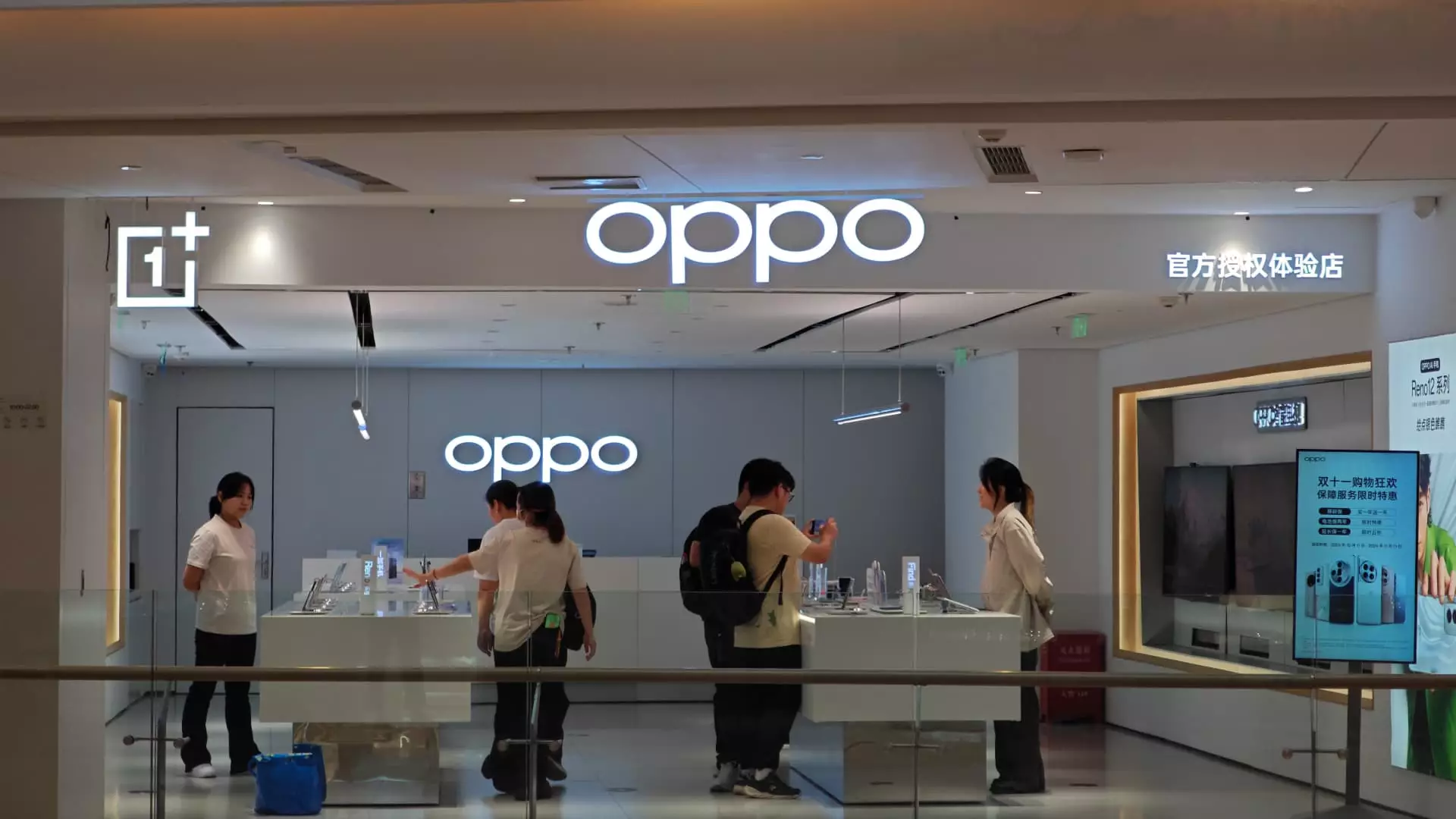Smartphone manufacturers are continually navigating a complex landscape where user privacy and technological advancement often clash. As privacy concerns intensify across the globe, especially in the wake of pervasive data harvesting practices by technology firms, companies are scrambling to adapt. Oppo, a prominent Chinese smartphone maker, is making waves with its recent announcement of the Private Computing Cloud, a groundbreaking move aimed at safeguarding user data while leveraging artificial intelligence.
By partnering with Google to implement its Confidential Computing software, Oppo endeavors to ensure that sensitive user information—be it browser history, private messages, or call logs—remains confidential and inaccessible to its own AI systems. This initiative is intriguing not solely for its novelty but for the larger context in which it emerges, reminiscent of Apple’s initiatives around protecting user data with its Private Cloud Compute system designed for intelligent handling of personal information.
Oppo’s approach embodies a strategic emulation of Apple’s successful privacy strategy, which emphasizes the delineation between user data and corporate AI processes. Apple’s foray into a similar domain has undoubtedly reshaped expectations regarding data privacy in consumer tech. By announcing its Private Computing Cloud, Oppo positions itself as not just another smartphone manufacturer but as a conscientious player keen on addressing users’ legitimate concerns about privacy in the AI age.
Commenting on the significance of this venture, Ben Wood, chief analyst at CCS Insight, highlights how AI fosters a unique set of privacy dilemmas, particularly in markets prolific in smartphone use, like China. With this privacy-centric approach, Oppo is making a statement: it aims to be a trusted partner in managing personal data while fostering AI-driven advancements.
Oppo’s Private Computing Cloud is not an isolated feature; it will be accompanied by various functionalities that showcase the company’s commitment to improving user experiences without compromising security. Planned features include advanced call summarization, image generation, and search capabilities—all enhanced by AI. Each of these integrations speaks to a broader trend in technology where user experience is paramount.
With technology shifting toward greater engagement and fluidity in operations, embedding Google’s AI capabilities into existing tools such as Notes, Calendar, and Clock is a smarter move. It enables users to interact in multifaceted ways without sacrificing their data privacy. Such developments may significantly reshape how users perceive AI and its applications, potentially altering the landscape of personal digital interactions.
In tandem with its privacy initiatives, Oppo has outlined ambitious targets for the rollout of its AI functionalities. The company aims to extend its generative AI features to an impressive 100 million users by 2025, a significant increase from its 2024 target of 50 million. This goal reflects Oppo’s recognition of AI not merely as an accessory but as a core attribute of modern smartphones aiming to resonate with tech-savvy consumers.
Equally telling is Oppo’s plan to bring the next-generation Gemini 2.0 model onto its devices, enhancing the capabilities of the AI being embedded within its smartphone ecosystem. This agentic AI, known for its ability to undertake various tasks autonomously, signals a shift towards a more interactive and intuitive user experience. By making such advanced features accessible, Oppo seeks to elevate its status in an increasingly competitive market.
Oppo’s advancements and strategic partnerships illustrate a broader movement within the smartphone industry, one that prioritizes not only technological innovation but also user privacy. As competitors like Honor also pursue similar partnerships with Google, a trend is emerging where operating in alignment with user data concerns could become a decisive factor in consumer choice.
In an age where digital trust is as valuable as the technology itself, Oppo’s actions reflect not just a shift in its strategy but a critical response to a cultural transition towards greater accountability in tech. As consumers become more discerning and demanding, businesses that prioritize privacy alongside innovation will likely resonate more deeply with their audiences.
Oppo’s launch of its Private Computing Cloud could mark a pivotal turning point in how smartphone manufacturers engage with the dual challenges of innovation and privacy preservation. With privacy becoming an essential element of user experience, the industry will undoubtedly watch closely as Oppo seeks to lead the charge into a future that harmonizes these often-competing priorities.

